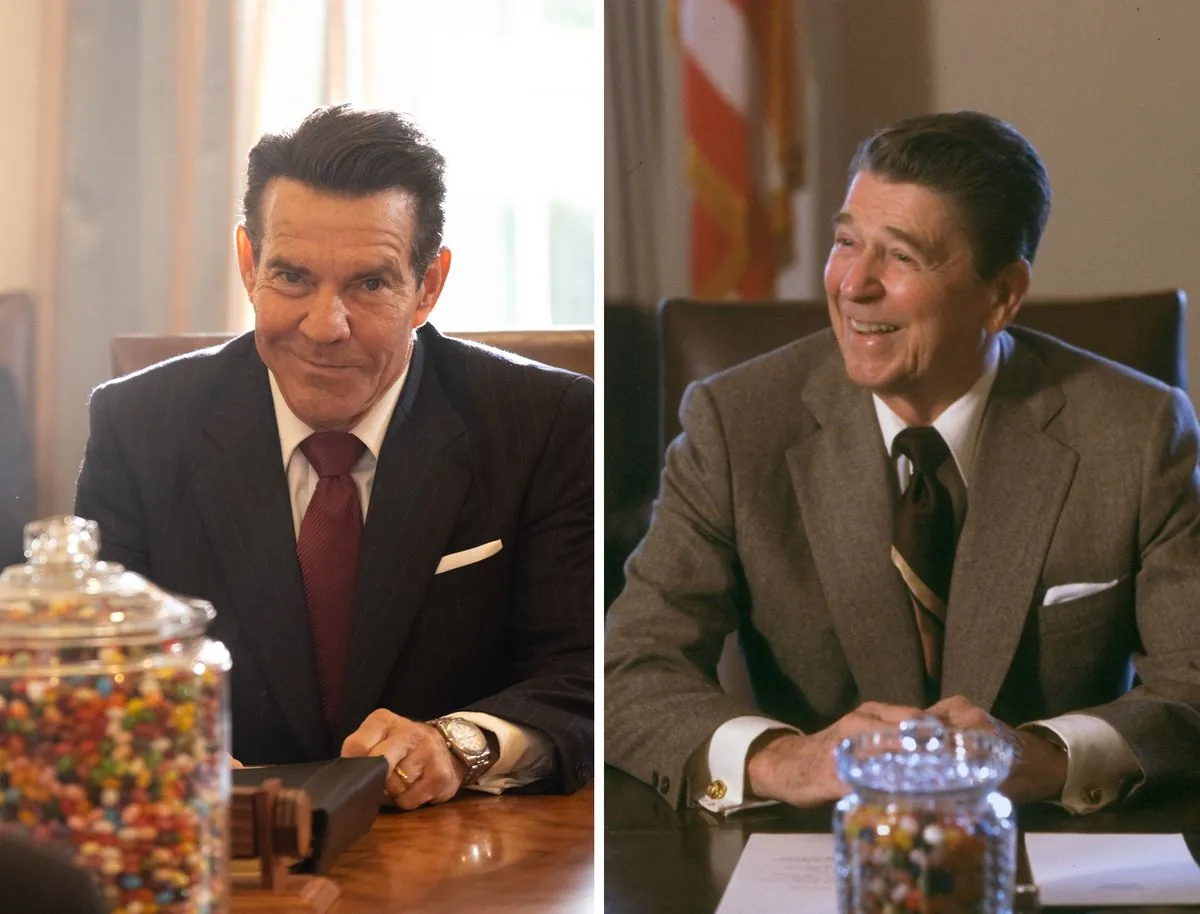A recent biopic titled "Reagan" attempts to portray the life and presidency of Ronald Reagan, the 40th President of the United States. However, the film falls short of providing a comprehensive and nuanced view of this complex historical figure.
The movie, starring Dennis Quaid as Reagan, focuses heavily on the president's anti-communist stance, which was indeed a significant aspect of his political career. However, it fails to delve into the multifaceted nature of Reagan's presidency and personal life.
Ronald Reagan, who served as president from 1981 to 1989, was known for his economic policies, often referred to as "Reaganomics," which focused on reducing taxes and government spending. The film, however, barely touches on these crucial aspects of his administration.
The biopic's narrative structure includes a framing device featuring Jon Voight as a retired KGB spy, explaining Reagan's impact on the fall of the Soviet Union. This approach has been criticized for oversimplifying the complex geopolitical dynamics of the Cold War era.
While the movie highlights Reagan's famous "tear down this wall" speech in Berlin in 1987, it fails to provide context for the significant developments in US-Soviet relations during his presidency. Reagan's journey from a hardline anti-communist stance to a more diplomatic approach in his second term is not adequately explored.
The film also glosses over important events such as the Iran-Contra affair, a major scandal during Reagan's second term. This omission, along with the lack of depth in portraying Reagan's domestic policies, contributes to the movie's superficial treatment of his presidency.
Dennis Quaid's performance as Reagan has been described as an "acceptable simulacrum," capturing some of Reagan's mannerisms but failing to convey the charisma that earned the president the nickname "Great Communicator."
The biopic touches on Reagan's personal life, including his marriages to Jane Wyman and Nancy Davis. However, it doesn't delve deeply into his relationships or his role as a parent, missing an opportunity to present a more rounded portrait of the man behind the presidency.
"For a movie about the Great Communicator, 'Reagan' communicates surprisingly little."
It's worth noting that Reagan's presidency saw significant events beyond his anti-communist stance, including major tax cuts like the Economic Recovery Tax Act of 1981 and the appointment of three Supreme Court justices. These aspects are largely absent from the film's narrative.
The movie's portrayal of Reagan's political opponents as one-dimensional "screaming hippie protesters" further undermines its credibility as a historical account. This simplistic approach fails to capture the complex political landscape of the 1980s.
In conclusion, while "Reagan" attempts to chronicle the life of a significant political figure, it falls short of providing a balanced and in-depth portrayal. The film's focus on Reagan's anti-communist crusade, at the expense of other crucial aspects of his presidency and personal life, results in a shallow and incomplete representation of the 40th US President.
